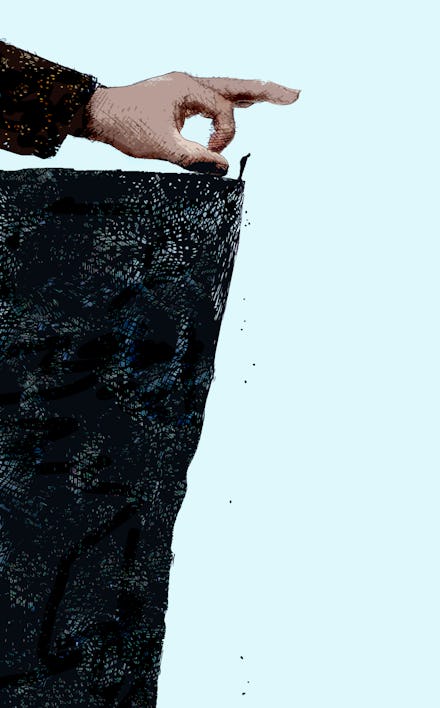The Harsh Way 22 States Punish People Who Can't Pay Their Student Loans

Defaulting on a student loan in the U.S. is disaster for a borrower. If you allow student loans go unpaid for long enough, it can result in the devastation of your credit, your wages being withheld by the government and seizure of your tax refunds. It could even cost you your job.
According to research by nonprofit workers' advocate group Jobs with Justice, in at least 22 states, defaulting on student loans allows state governments to revoke a borrower's professional license.
The laws, which vary by state, mean nurses, pharmacists, teachers, barbers, social workers and others can be stripped of the credentials that are legally required for their line of work, just for failing to keep up with their loan payments. Close to one-third of jobs in America require occupational licensing.
According to Fusion, state records show thousands of professionals have had their credentials suspended. In three states, driver's licenses can also be confiscated, according to Jobs with Justice.
As you can see in the map below, these laws — most of which were established in the past two decades — span from coast to coast. The states shaded blue have these laws on the books:
Defaulting on a loan isn't the same as being casually late on a payment. A loan is considered to be in default — assuming it isn't under some kind of deferment — if it hasn't been paid in somewhere between 270 and 330 days, depending on the type of loan.
The laws most conspicuously target nurses and teachers. In almost every single state with one of these laws, nurses can have their licenses taken away for default. In 10 states, K-12 teachers can be barred from their jobs.
It's unclear that if that pattern is a coincidence, or a widespread conviction among state legislatures that teachers and nurses are especially prone to financial irresponsibility.
Of course, carelessness is not the best explanation for student loan default. Given that most people are aware of at least some of the punishments for defaulting on student loans, financial hardship is the main culprit for student loan default.
Who defaults? Defaulting on student loans is not an uncommon phenomenon. In the fall of last year, the student debt default rate was 13.7% of borrowers, meaning 650,000 people defaulted on their student loans, according to Inside Higher Ed.
Delinquency and default for student loans has continued at high rates even as the economy has recovered and delinquency and debt on all other kinds of debt has declined. That's likely in part because of the absence of an exit option: Student debt is the stickiest kind of debt in America. It's extremely difficult to discharge during bankruptcy, unlike credit cards or mortgages. It's easier to discharge yachts and vacation homes than it is to have student loans forgiven.
Interestingly, crushing mountains of debt are not most commonly associated with default. Analyses by the New York Federal Reserve and Education Sector suggest that it's concentrated among smaller loans taken out by people who drop out of a degree or pursued non-four-year degrees, a demographic that correlates with lower income. In other words, the people most likely to have their financial health destroyed by default are the ones who are the most financially vulnerable in the first place.
The combined effect of these laws is that we reserve our harshest punishments for those most desperate for brighter prospects — prospects that they invested in. It's a shame that many are worse off than had they not even tried.
h/t Fusion